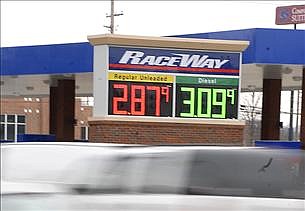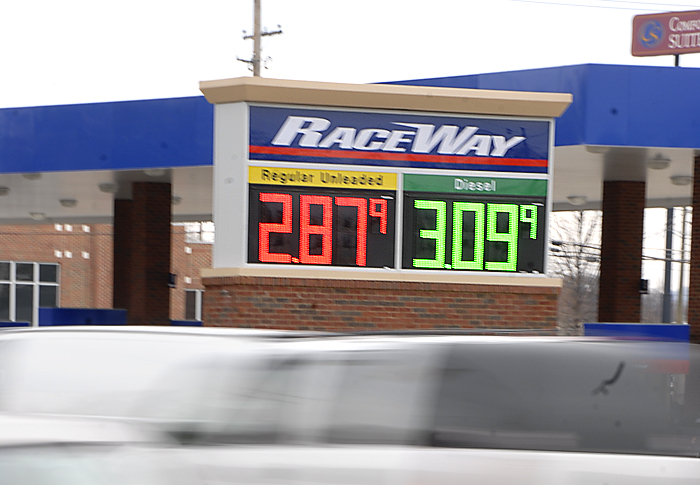The average price for a gallon of gasoline in the Chattanooga area is at $2.94 and prices are expected to keep rising, AAA experts say.
By the summer, experts predict the national average could reach as high as $3.50 a gallon.
"Expect varying costs to go up [as well]" said AAA spokeswoman Jessica Brady, including groceries and airline tickets. "Everything tends to go up when we see higher gas prices."
Average gasoline prices in the Chattanooga area are up 46 cents a gallon from a year ago. Diesel prices are up about 50 cents a gallon from a year ago, according to AAA, and local companies are feeling the effects.
Fuel costs for Chattanooga-based trucking company U.S. Xpress increased $6 million in December compared with the same month last year, said Ray Harlin, the company's chief financial officer.
Generally, prices to customers are adjusted weekly to take into account increases and decreases in fuel cost, which "passes a lot of cost to the retailer and the consumer," Harlin said.
"It really affects the whole supply chain," he said.
Consumers could see some relief in mid-January, when some experts predict average gas prices could fall to $2.80 a gallon, Brady said. But those prices aren't expected to last when the warm weather arrives.
"During the summer time we tend to see the highest prices," Brady said, because demand increases.
The national average could reach $3.25 to $3.50 per gallon, she said. Tennessee prices are generally about 10 cents lower than the national average.
Brady told The Tennessean newspaper that factors in the cost of gas are determined by the strength of the U.S. dollar, willingness to invest in crude oil and global demand.
"With the increase in demand, we're seeing prices go up," Brady said.
Natural disasters also can raise the cost of oil, officials said.
The demand for gasoline in Tennessee has not returned to levels it hit before 2008, when Hurricane Ike combined with the economic downturn to raise prices, Emily LeRoy, executive director of the Tennessee Fuel & Convenience Store Association, told The Tennessean.
"What is driving these price spikes is global demand and speculation in the commodities market," she said.
Contact staff writer Joy Lukachick at jlukachick@timesfreepress.com or 423-757-6659. Follow her on Twitter at twitter.com/jlukachick.

